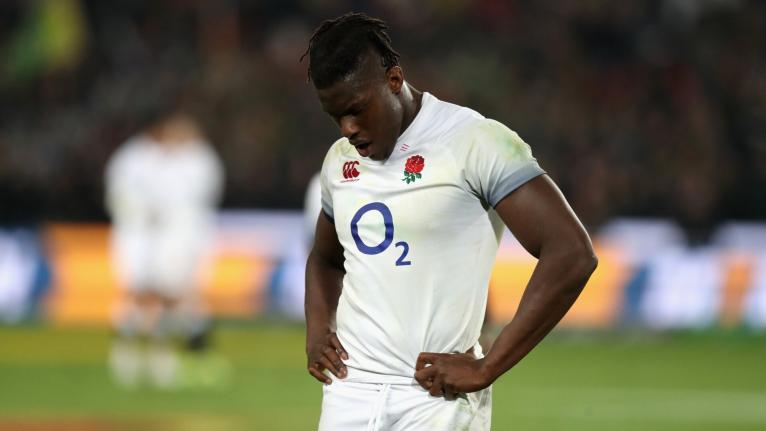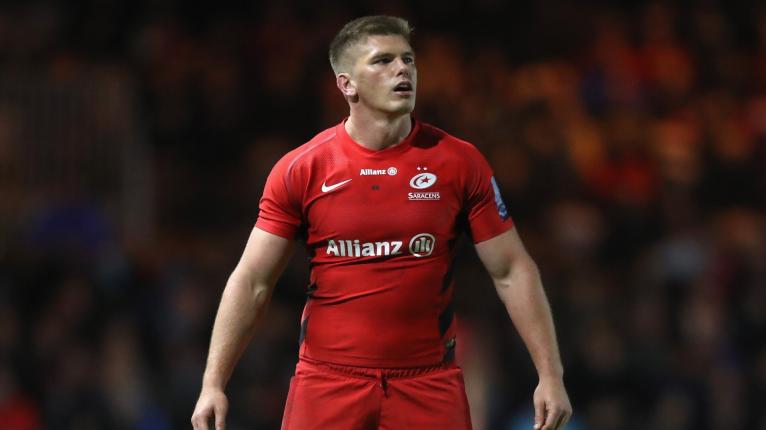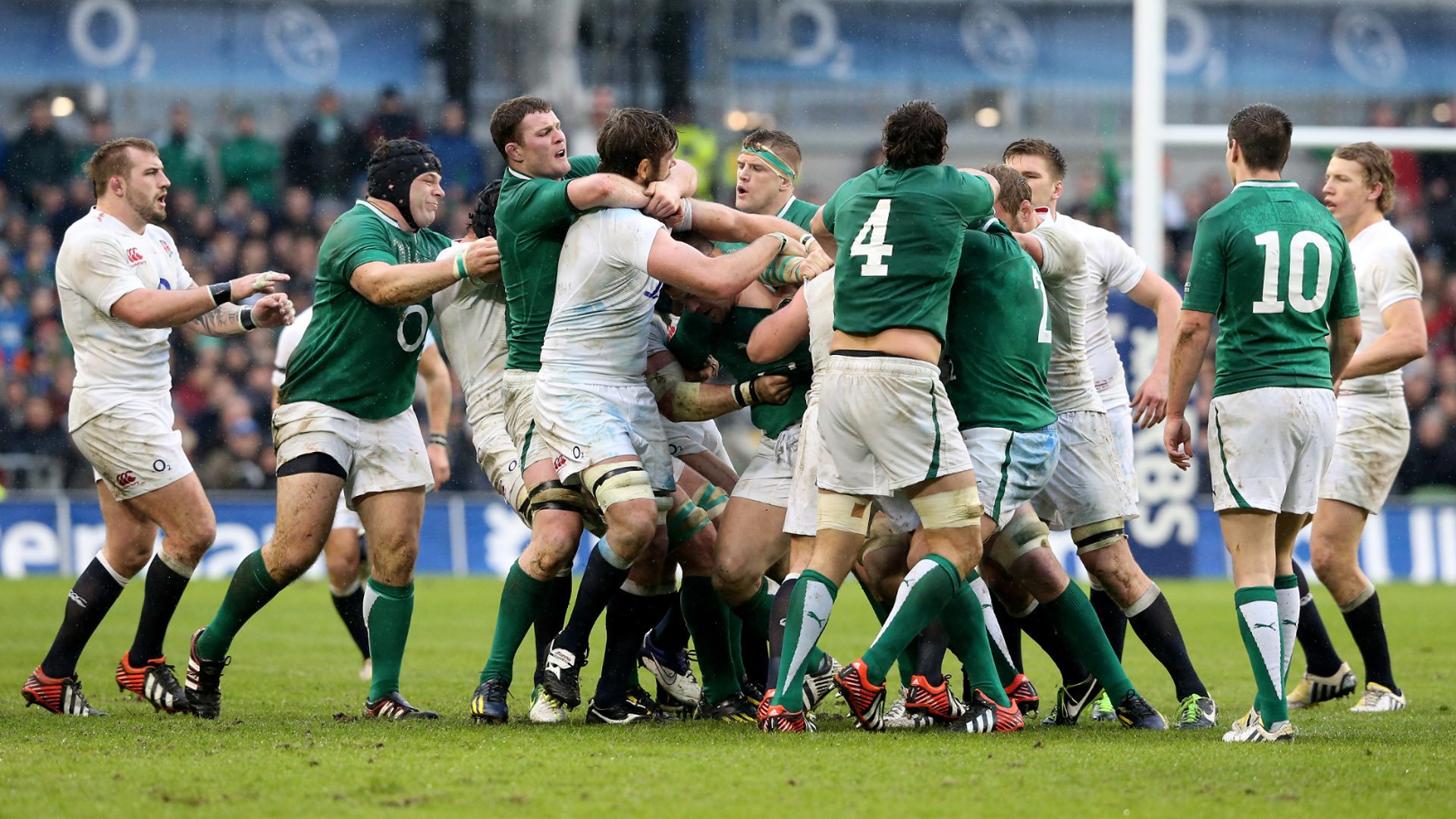Ireland versus England.
There are few more appetising fixtures in the rugby calendar and as a contest for the opening week of the Guinness Six Nations, it is tough to top, with the two sides between them accounting for all five championship titles since 2014.
After storming out of the post-2015 Rugby World Cup blocks, England have conceded their dominance of northern hemisphere rugby to Ireland, but now head to Dublin – in a RWC year – with their focus set on retaining their title and going into rugby’s showpiece later this year in as strong a position as possible. Ireland, meanwhile, have dispensed with the underdog tag and are now ready to embrace their place at the top of the international game.
The Coaches
In a meeting of two of the canniest operators in world rugby, who comes out on top?
Joe Schmidt is 2-1 up on Eddie Jones in the head-to-head between the two coaches in their current tenures and the New Zealander is widely regarded as one of the best, if not the pinnacle of current international coaches. He has taken Ireland – who were perennially seen as underperformers on the international stage – and turned them into a side that has recorded multiple wins over the All Blacks, as well as delivering the nation’s third Grand Slam in their Six/Five Nations history.
As for the Australian, he enjoyed remarkable success with England early in his reign but has seen that initial momentum tempered by a challenging 2018. His intense training methods have drawn criticism and he is no stranger to controversial selection decisions, but he has still led England to 28 victories in the 35 test matches he has presided over, boasting an impressive win rate of 80%.
Advantage: Schmidt
Continue reading below…
Watch: Six Nations preview: Ireland in profile
The Players
Tadhg Furlong (92) vs Mako Vunipola (87)
Unarguably the best tighthead in world rugby going up against certainly the most well-rounded loosehead. In terms of the set-piece battle, this match-up has to go in favour of Furlong, with his scrum score of 88 on the RPI topping Vunipola’s 70. The contribution in the loose leans itself more towards Vunipola, however, with the loosehead’s influence rating of 76, which charts involvements in scoring moments, seeing off the Leinster prop’s mark of 62. Last season, Furlong’s dominance in the set-piece would be enough to narrowly swing this contest, but with his 2018/19 form falling ever so slightly short of his bullocking 2017/18 displays, this is too close of a contest to call.
Advantage: Even

James Ryan (93) vs Maro Itoje (93)
Ryan has seemingly replaced Itoje as the golden boy of European rugby, helping lead Leinster and Ireland to European and Six Nations triumphs, just as Itoje did with Saracens and England previously. A growing penalty count in international matches has seen the spotlight move somewhat from the English lock to Ryan, but such is the role that Jones asks Itoje to perform for his side. He is England’s spoiler-in-chief, whilst Ryan is given slightly more freedom to influence the game with his carrying. It is an incredibly tight contest to call, but Itoje’s ability at the lineout – lineout take of 89 and lineout steal of 92 – just edges it his way, with Ryan at 86 and 91 respectively on those RPI measures. Itoje’s proclivity for creating turnovers and springing transition rugby is something which could well be pivotal in deciding the outcome on Saturday, as illustrated by his influence rating of 82 to Ryan’s mark of 64.
Advantage: Itoje
Conor Murray (80) vs Ben Youngs (68)
On paper, this could be seen as a one-sided contest. Murray is widely regarded as the best scrum-half in world rugby, especially with Aaron Smith slightly off his best over the last year and Faf de Klerk operating in an effective but quite unorthodox fashion. That said, Youngs is not too far off that top trio and it is arguably only because of the standards Murray has maintained in the northern hemisphere, that Youngs is not praised more for his consistency with England. Tempo, fringe opportunities, contestable box-kicks and accurate distribution are all areas where Youngs does well, but they are also all areas where Murray likely has small-to-significant advantages over his counterpart.
Advantage: Murray

Jonathan Sexton (92) vs Owen Farrell (92)
The British and Irish Lions fly-half up against the British and Irish Lions inside centre, the box-office match-ups just keep on coming. On recent form, the needle is hovering slightly more in Sexton’s direction, but this is another of the contests which could go either way, particularly if one of the two packs can consistently deliver front-foot and quick ball for their side. Sexton arguably has the edge in multiple involvements in the same phase and manipulation of space, whilst Farrell shades it in late play on the gain-line and the physicality he will bring in defence. Of course, that last one could cost England as much as it helps them. This match-up may well be dictated by what the players around this pair do, rather than just their individual merits, but the advantage swings the way of the Irishman going into the contest.
Advantage: Sexton

Jacob Stockdale (84) vs Jonny May (73)
Perhaps a little unorthodox of a head-to-head, especially given the likes of Manu Tuilagi, Garry Ringrose and Bundee Aki that are not mentioned, but in addition to being their respective team’s best finishers, these two are also going to be key to the success of the kicking game on Saturday. The box-kick is only half the battle in the contest for territory, with the chase provided often making or breaking a scrum-half’s game. In this area, May could have a slight advantage over Stockdale, but it’s impossible to ignore the offensive form of the Ulsterman. He is barrelling his way over the try line, beating men for pace on the outside, collecting cross-field kicks and even tracking the ball in midfield as a support-runner. He is as versatile an attacking winger as there currently is, which is illustrated by his influence rating of 80, an extremely high mark for a player at Ulster, who do not necessarily create the amount of scoring moments that the Leinsters and Saracens of European rugby do.
Advantage: Stockdale
Key Battlegrounds
Gain-line
It’s going to be such a competitive and physically gruelling contest, with two of the best defences international rugby has to offer, so whichever side is able to more successfully break that gain-line is going to have a big advantage in the game. A pair of fit Vunipolas provide plenty of impetus for England, but is it enough for a pack that has struggled to generate that front-foot ball in the last year, especially against a defence as well-drilled as Ireland’s?
As for Ireland, they have the firepower in CJ Stander, Furlong and Ryan to consistently make those two or three metre carries that, whilst not making the highlight reel, keep Ireland moving forward onto the ball, rather than crabbing laterally or taking a step back.
Advantage: Ireland
Lineout
Can Peter O’Mahony and Ryan pillage the English set-piece or will George Kruis and Itoje be able to disrupt the Irish unit? The advantage at hooker probably lies with England and Jamie George, whose consistency when throwing is well-known, but O’Mahony has wrecked even the most efficient set-pieces in the past. If he can deny England a platform from which to build and dent their confidence that they can play a territory game at the Aviva, he’ll have Ireland on their way to victory.
That said, England have one of the better lineouts in international rugby and in Itoje and Kruis, two premier jumpers. Finding a third jumper they can go to consistently could be key if Ireland start to read England’s throws early, but they do have Courtney Lawes in reserve, so they do not lack for options. They will be confident about pressuring Rory Best, too, and if they can do that without coughing up penalties, the pendulum should swing in their favour.
Advantage: England
Conclusion
The RPI has Ireland as the number two team in international rugby, with 86 points, whilst England sit in third at 83, and it’s hard to disagree with that assessment. Throughout this pre-match analysis, Ireland have tended to shade the close contests and it would take a brave person to bet against similar happening on the scoreboard in Dublin on Saturday.
Ireland are reigning Grand Slam champions, they knocked off New Zealand at the end of 2018 and they have momentum coming into the tournament thanks to strong showings from the provinces in the Heineken Champions Cup. England can spoil the party on Saturday, but Ireland have the advantage going into the contest.
Ireland by 5.
Watch: Six Nations preview: England in profile








































































